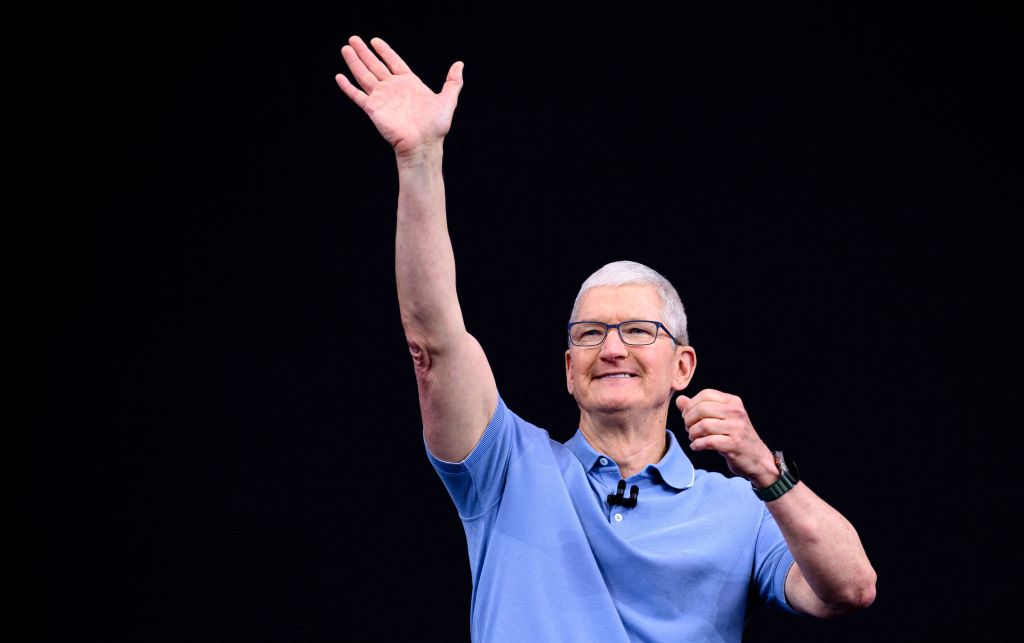Tim Cook’s Pay Surge: A Closer Look at Apple’s DEI Policy Defense
In a significant development in the corporate world, Apple CEO Tim Cook has seen an 18% increase in his compensation package, a move that has raised eyebrows and sparked intense discussions among shareholders and industry analysts alike. This pay surge coincides with Apple’s decision to reject a shareholder proposal aimed at abolishing its Diversity, Equity, and Inclusion (DEI) policy. This situation not only highlights the ongoing debate surrounding executive compensation but also raises critical questions about corporate governance and stakeholder interests.
Understanding Tim Cook’s Compensation Package
Tim Cook’s recent pay increase brings his total compensation to approximately $100 million for the fiscal year. This figure includes a mix of salary, bonuses, and stock awards, reflecting the company’s strong performance and Cook’s leadership. However, the decision to significantly raise Cook’s pay amid a broader economic context, where many workers face stagnating wages, has drawn criticism.
Many shareholders argue that such high levels of executive pay are unjustifiable, particularly when juxtaposed against the compensation of average employees. According to data from the Economic Policy Institute, the compensation for CEOs in large firms has grown significantly over the past few decades, often at a rate far exceeding that of the average worker. This discrepancy has led to increased scrutiny of corporate practices regarding pay equity.
Apple’s Defense of Its DEI Policy
In tandem with Tim Cook’s pay surge, Apple has faced backlash over its DEI initiatives. The recent shareholder proposal aimed to eliminate the company’s DEI policy, claiming it is unnecessary and burdensome. However, Apple’s board rejected the proposal, standing firm in its commitment to diversity and inclusion.
Apple argues that its DEI initiatives are integral to its culture and business strategy. The company has made substantial investments in programs designed to enhance workplace diversity, equity, and inclusion, which they believe contribute to innovation, employee satisfaction, and ultimately, better business outcomes. Apple’s stance reflects a growing trend among major corporations that see DEI not just as ethical imperatives but as essential components of their competitive advantage.
The Broader Implications for Corporate Governance
The situation surrounding Tim Cook’s pay surge and Apple’s DEI policy brings forth broader implications for corporate governance. Shareholder proposals like the one presented to Apple are becoming increasingly common, as investors demand greater accountability and transparency regarding executive compensation and corporate policies. The rejection of such proposals raises questions about the effectiveness of shareholder influence in guiding corporate decisions.
Corporate governance experts highlight that companies must strike a balance between rewarding executives for their performance and ensuring that such compensation aligns with the interests of shareholders and the broader community. In cases where executive pay seems disconnected from company performance or societal expectations, companies risk alienating their stakeholders.
Analyzing the Impact of DEI Policies
Supporters of DEI policies argue that they are crucial for fostering an inclusive workplace environment that benefits all employees. Research has shown that diverse teams often outperform their homogeneous counterparts, leading to better decision-making and innovation. For instance, a report from McKinsey & Company indicates that companies with more diverse executive teams are 33% more likely to outperform their peers on profitability.
- Enhanced Innovation: A diverse workforce brings a variety of perspectives, fostering creativity and innovation.
- Improved Employee Engagement: Employees are more likely to feel valued and engaged in an inclusive environment.
- Attraction of Top Talent: Companies committed to DEI are often more attractive to prospective employees, particularly among younger generations.
Stakeholder Reactions and the Path Forward
The shareholder backlash against Tim Cook’s pay surge and the rejection of the DEI proposal has elicited varied reactions from stakeholders. Some applaud Apple for maintaining its commitment to diversity, while others express concern over the implications of rising executive compensation. This duality highlights the complexities of modern corporate governance, where companies must navigate competing interests.
Moving forward, it will be essential for companies like Apple to engage with their shareholders transparently and constructively. Open dialogue about executive compensation, performance metrics, and the tangible benefits of DEI initiatives can help bridge the gap between executive leadership and shareholder expectations.
Conclusion: The Future of Corporate Responsibility
Tim Cook’s pay surge and Apple’s steadfast defense of its DEI policy represent a critical juncture in corporate governance. As companies grapple with the expectations of shareholders and the demands of ethical business practices, the balance between executive compensation and social responsibility will continue to be a focal point of discussion.
Ultimately, the dialogue surrounding these issues is vital for the evolution of corporate governance. Companies that prioritize transparency, accountability, and inclusivity are likely to foster stronger relationships with their stakeholders, leading to sustainable success in an increasingly complex business landscape. As Apple moves forward, its approach to these challenges will not only shape its future but also influence broader trends in corporate America.
See more Business Focus Insider Team

